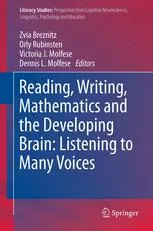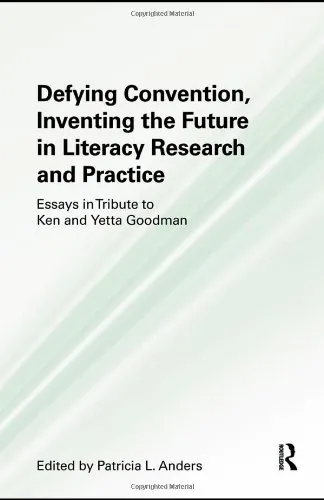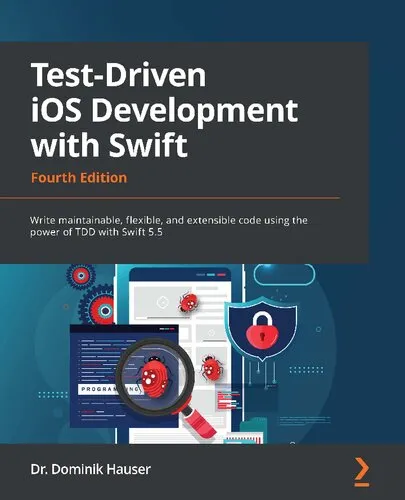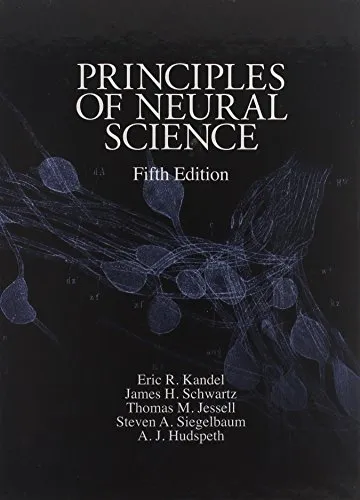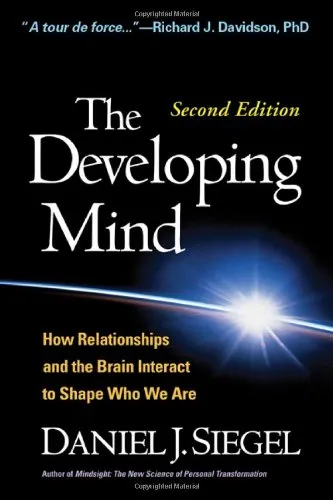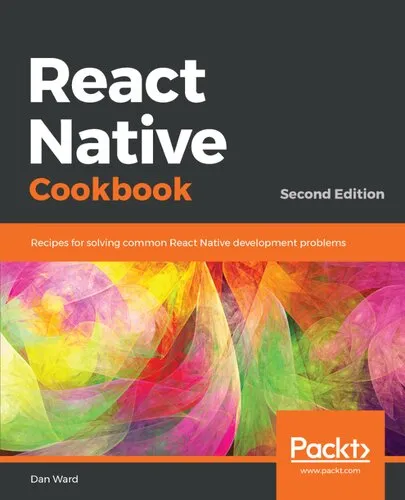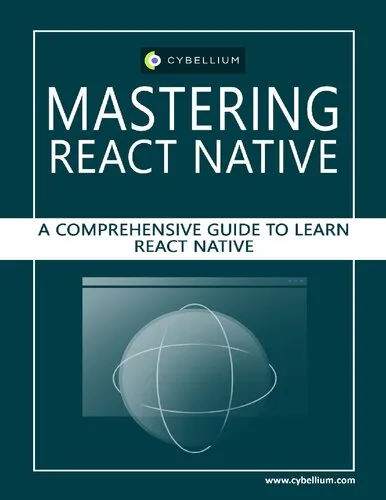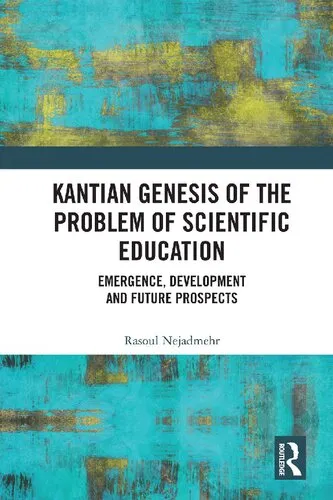Reading, Writing, Mathematics and the Developing Brain: Listening to Many Voices
4.5
بر اساس نظر کاربران

شما میتونید سوالاتتون در باره کتاب رو از هوش مصنوعیش بعد از ورود بپرسید
هر دانلود یا پرسش از هوش مصنوعی 2 امتیاز لازم دارد، برای بدست آوردن امتیاز رایگان، به صفحه ی راهنمای امتیازات سر بزنید و یک سری کار ارزشمند انجام بدینکتاب های مرتبط:
معرفی کتاب: Reading, Writing, Mathematics and the Developing Brain: Listening to Many Voices
کتاب Reading, Writing, Mathematics and the Developing Brain: Listening to Many Voices رویکردی چندوجهی و علمی به موضوع توسعه مهارتهای خواندن، نوشتن و ریاضیات در ارتباط با مغز در حال رشد ارائه میکند. این اثر ارزشمند که توسط نویسندگانی برجسته از جمله Victoria J. Molfese، Zvia Breznitz، Orly Rubinsten و Dennis L. Molfese گردآوری شده است، به بررسی تعاملات پیچیده بین فرآیندهای شناختی و یادگیری میپردازد. در این کتاب نقش علوم اعصاب شناختی (Cognitive Neuroscience) در فهم بهتر یادگیری کودکان مورد توجه قرار میگیرد.
خلاصهای جامع از محتوا
کتاب به گونهای سازماندهی شده است که خواننده را در مسیری هدایت میکند تا درک عمیقی از تأثیرات عوامل زیستی و محیطی بر یادگیری کودکان پیدا کند. این کتاب از مدلهای تحقیقاتی در علوم اعصاب برای تبیین رفتارهای یادگیری نظیر شناسایی کلمات، اصلاح غلطهای نوشتاری و درک مفاهیم ریاضی استفاده میکند. همچنین، ارتباط مستقیم بین ساختار مغز و ظرفیتهای اجرایی در حوزههای Reading، Writing و Mathematics با مثالهای متنوع توضیح داده شده است.
فصلهای این کتاب به طور ویژه به موضوعاتی نظیر تأثیر ژنتیک، نقش فناوریهای تصویربرداری مانند fMRI، و بررسی اختلالات یادگیری نظیر Dyslexia و Dyscalculia اختصاص دارد. این بخشها با استفاده از دادههای مستند و تحلیلهای تجربی ثابت میکنند که چگونه مغز انسان در طول زمان توانایی یادگیری خود را توسعه یا محدود میکند.
نکات کلیدی
- خواندن، نوشتن و ریاضیات به طور مستقیم با رشد ساختارهای مغزی نظیر نیمکره چپ مرتبط هستند.
- تکنیکهای پیشرفته مانند Electroencephalography (EEG) و Magnetoencephalography (MEG) امکان بررسی فعالیتهای دقیقه به دقیقه مغز را فراهم میسازند.
- تأثیر عوامل محیطی مانند محیط خانواده و حضور فناوری در یادگیری برجسته است.
- مطالعات نشان میدهند که تشخیص به موقع اختلالات یادگیری میتواند بهبود قابل توجهی در عملکرد تحصیلی ایجاد کند.
جملات معروف کتاب
"The developing brain is a complex landscape where reading, writing, and mathematical abilities emerge as symbiotic companions."
"Through advanced neuroscientific methodologies, we are unraveling mysteries of how children acquire skills essential to human culture."
چرا این کتاب اهمیت دارد؟
سالهاست که محققان تلاش میکنند تا رابطه بین مغز و یادگیری را درک کنند، اما این کتاب رویکردی منحصر به فرد ارائه میدهد که چندین حوزه علمی را ترکیب کرده است. خواندن، نوشتن و ریاضیات به عنوان سه مهارت اصلی نه تنها برای موفقیت تحصیلی بلکه برای تعاملات روزمره اهمیت دارند. این اثر زمینهای علمی و عملی فراهم کرده که میتواند به مربیان، والدین و پژوهشگران کمک کند تا روشهای آموزشی بهتری طراحی کنند. این کتاب همچنین دانش جدیدی دربارهی اختلالات یادگیری ارائه داده است که میتواند برای مداخلات زودهنگام مؤثر باشد.
Introduction to "Reading, Writing, Mathematics and the Developing Brain: Listening to Many Voices"
The interplay between education and neuroscience is a field that has captured the interest of researchers, educators, and policymakers alike. "Reading, Writing, Mathematics and the Developing Brain: Listening to Many Voices," authored and edited by Victoria J. Molfese, Zvia Breznitz, Orly Rubinsten, and Dennis L. Molfese, explores this intersection by shedding light on how the developing brain processes key academic skills. This comprehensive work dives deep into the cognitive and neurological processes involved in learning, focusing on pivotal areas such as literacy, numerical understanding, and writing capabilities. The authors bring together rich perspectives from multidisciplinary domains, making this book a powerful resource for anyone interested in understanding the science behind education.
By integrating the voices of neuroscientists, psychologists, linguists, and educators, the book offers an inclusive lens to interpret the challenges and opportunities that arise when supporting the development of critical academic skills. "Reading, Writing, and Mathematics" is not just a textbook for researchers; it is a guide for teachers, parents, and education enthusiasts who wish to foster productive and scientifically informed educational practices.
Detailed Summary of the Book
The book is structured around the intricate relationship between brain development and the acquisition of academic abilities. It delves into the neurological underpinnings of reading, exploring how both genetic predispositions and environmental influences shape this essential skill. The authors emphasize that literacy is not just an innate ability but a learned process shaped by the brain's adaptability.
In addition to reading, the book examines the cognitive mechanisms behind writing and numeracy. Writing presents unique challenges for the developing brain as it integrates motor, cognitive, and linguistic skills. The chapters dedicated to mathematics underscore how the brain comprehends numerical concepts, identifying the roles of working memory, spatial awareness, and problem-solving abilities.
An especially unique feature of the book is its emphasis on multidisciplinary approaches. By incorporating studies from neuroscience, psychology, and education, the authors highlight how collaborative research efforts can deepen our understanding of brain-behavior relationships in learning contexts.
The book doesn't shy away from critical issues such as learning difficulties. Dyslexia, dysgraphia, and dyscalculia are explored in detail, providing insights into their neurobiological foundations and practical strategies for intervention. Readers are presented with case studies, data, and real-world applications to reinforce these discussions, making this an impactful read for both academic and applied audiences.
Key Takeaways
- The development of reading, writing, and mathematical skills relies on a sophisticated interplay between brain function, genetics, and environment.
- Early intervention and targeted educational strategies can significantly improve learning outcomes for children with learning difficulties.
- Collaborative, multidisciplinary research provides more nuanced insights into the neuroscience of learning.
- Advances in neuroimaging and cognitive psychology are reshaping the way we approach education.
- Understanding the brain's adaptability (neuroplasticity) can empower educators to tailor teaching methods for diverse learners.
Famous Quotes from the Book
"To truly understand learning, we must listen to the many voices of science, education, and practice—not as isolated entities, but as a harmonious symphony working toward the same goal."
"Neuroplasticity offers us hope; it reminds us that the brain, even when challenged, can grow, adapt, and flourish under the right conditions."
Why This Book Matters
The value of "Reading, Writing, Mathematics and the Developing Brain: Listening to Many Voices" lies in its ability to bridge the gap between science and education. At a time when education systems around the world face mounting challenges in addressing diverse learner needs, this book serves as a timely intervention. Its authoritative approach draws from multiple disciplines to offer actionable insights for educators, parents, and policymakers.
Moreover, the book celebrates the brain's extraordinary capacity to adapt and thrive, even under challenging circumstances. By understanding the natural processes that underpin learning, readers are better equipped to nurture the potential of every child. Whether you're a seasoned researcher or an educator just beginning to explore this field, this book promises to be a transformative resource in expanding your understanding of how we learn and teach critical academic skills.
دانلود رایگان مستقیم
شما میتونید سوالاتتون در باره کتاب رو از هوش مصنوعیش بعد از ورود بپرسید
دسترسی به کتابها از طریق پلتفرمهای قانونی و کتابخانههای عمومی نه تنها از حقوق نویسندگان و ناشران حمایت میکند، بلکه به پایداری فرهنگ کتابخوانی نیز کمک میرساند. پیش از دانلود، لحظهای به بررسی این گزینهها فکر کنید.
این کتاب رو در پلتفرم های دیگه ببینید
WorldCat به شما کمک میکنه تا کتاب ها رو در کتابخانه های سراسر دنیا پیدا کنید
امتیازها، نظرات تخصصی و صحبت ها درباره کتاب را در Goodreads ببینید
کتابهای کمیاب یا دست دوم را در AbeBooks پیدا کنید و بخرید
1246
بازدید4.5
امتیاز0
نظر98%
رضایتنظرات:
4.5
بر اساس 0 نظر کاربران
Questions & Answers
Ask questions about this book or help others by answering
No questions yet. Be the first to ask!
